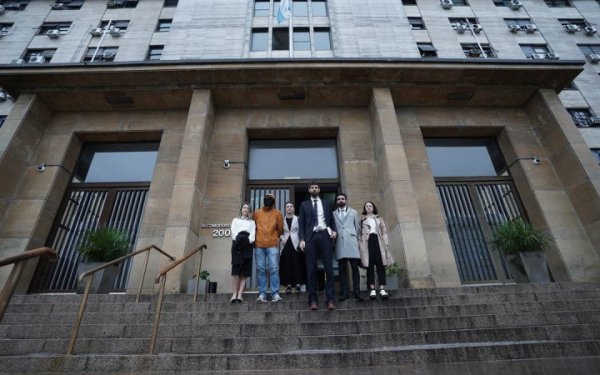The lawsuit, together with the Ukrainian, was filed by The Reckoning Project, an initiative of journalists and lawyers to document war crimes. Courts in Argentina can consider such crimes regardless of where they were committed.
An initiative of Ukrainian and international journalists to document war crimes and a Ukrainian who suffered as a result of torture by the Russians in occupied territories, filed a criminal lawsuit in the Federal Court of Argentina
This is stated in the press release of the initiative.
The lawsuit was filed by Mr. M, whose name is not disclosed for security reasons.
The victim asks the court to investigate the torture that was applied to him by identified and unidentified Russian officials and persons associated with them, who themselves tortured him, and also helped to apply torture.
This is the first ever Ukrainian lawsuit regarding torture filed in court in Argentina.
“The man’s testimony demonstrates the practice of electric shock torture during detention by the Russians in one of the Ukrainian cities they occupied. They are confirmed by the findings of international organizations, including the UN, which documented similar cases of torture that were used against other persons on the territory of the same facility where the victim was kept,” the initiative noted.
Subscribe to our Youtube channel
The torture of the man was carried out with the assistance of institutions affiliated with the Russian state and their leaders. “I am one of many. I know quite a few who went through it because of a much worse attitude. I want to tell the whole world about our pain. Because torture of people continues to be practiced in Russian-occupied Ukrainian territories,” noted Mr. M.
On his trip to Argentina from The Reckoning Project, Mr. M was accompanied by Natalya Gumenyuk, a Ukrainian journalist, co-founder of the project and director of the Laboratory for Public Journalism interest She notes that the countless evidence of torture of civilians in Ukraine requires the international community to support justice.
“Over the past two years, our relatively small team alone has had the opportunity to interact with several hundred survivors of war crimes in Ukraine. We have documented more than a hundred testimonies of people who were abducted, held in inhumane conditions, tortured, and up to several dozen of them subjected to electric shocks. The story of Mr. M, unfortunately, is one of many. We cannot expect that one legal system can cope with so many crimes, as stated in UN statements. For us, Ukrainians, the Argentine examination of the courts is both a call for international support in upholding the rule of law and hope that justice is possible,” she said.
Note that the Argentine Constitution, on the basis of universal jurisdiction allows courts to try international crimes, in particular crimes against humanity and war crimes, regardless of where exactly they were committed
“Over the years, Argentina has taken a leading role in the fight against impunity both nationally and internationally, handling cases from different countries under the principle of universal jurisdiction. The Argentine judicial system has made landmark decisions in cases involving the crime of torture,” Gumenyuk added.
Gumenyuk notes that Argentina has a unique practice and direct experience of investigations and court decisions specifically on civilian torture. In particular, Uighurs, Rohingya Muslims and Palestinians from the Gaza Strip filed their claims in the country's courts. Global consequences of terror
In February and March 2024, before filing the lawsuit, Natalya Gumenyuk and Tsvetelina van Benthem, a legal scholar at the University of Oxford and senior legal adviser at The Reckoning Project, visited Argentina to meet with government officials, human rights and criminal justice organizations and research. responsibility for international crimes committed during the country's civil-military dictatorship.
“Argentina has created the conditions in politics and law for justice that has no borders. Torture is torture, no matter where it is used,” says Tsvetelina.
British-Syrian lawyer Ibrahim Olabi, who led the project team on the case, notes: “International crimes may be committed in one country, but through international agreements the global community has made it clear that they should affect everyone countries Today we call on the serious justice of Argentina, which understands such allegations like no other, to thoroughly investigate these terrible violations.”

